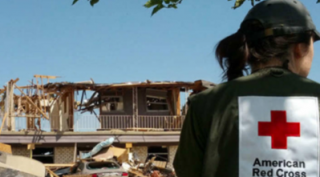What Do I Do After a Disaster?
Emergencies can occur at any time, and can affect people for minutes, hours and days following a disaster.
People are also often concerned about “what’s next” following disaster, especially if their homes are damaged.
If you experience a disaster, this list will help you manage the situation.
- Make sure you, your family members, and pets are safe and accounted for. If family members are missing, seek help from first responders.
- Prior to a disaster, a "go bag" should be made, to ensure you have extra resources after a disaster, such as toiletries, identification, food, water, and first aid. Make sure everyone in your household has one, and takes it with them when you're able to relocate.
- If you have a home standing, but there is damage, secure your property. This may mean making temporary repairs.
- Take photos of the damage.
- If you can still live in your home, but it requires some critical repairs, contact your insurance agent. Be sure to take photos before the work is started. Save all receipts related to the repair for your claim. Remember to watch out for home repair scams.
- If you need another place to shelter, keep track of all expenses that may come up during this time. Collect receipts and put them in an envelope until you can meet with an insurance representative. Many homeowner’s and renter’s insurance policies provide limited coverage for hotel, meals, and other expenses following a disaster.
- If you do not have money to afford a place to shelter or don't have insurance, go to a local community shelter. Communities of faith and schools are often converted into shelters following a disaster. Additional information on sheltering in the event of an emergency is available at: https://www.redcross.org/get-help/disaster-relief-and-recovery-services/find-an-open-shelter.html
You will also want to register for disaster assistance at https://www.fema.gov/assistance.
You may need the following information to do this:
- Social Security number
- Address of the location where the damage occurred (pre-disaster address)
- Current address
- Current telephone number
- Insurance information
- Total household annual income
- Routing and account number of your checking or savings account (this allows FEMA to directly transfer disaster assistance funds into your bank account)
- A description of your disaster-caused damage and losses
You can also register by calling 1-800-621-FEMA (3362)/1-800-462-7585 (TTY) or visiting a Disaster Recovery Center (DRC). To find a DRC near you, use FEMA's online locator.

